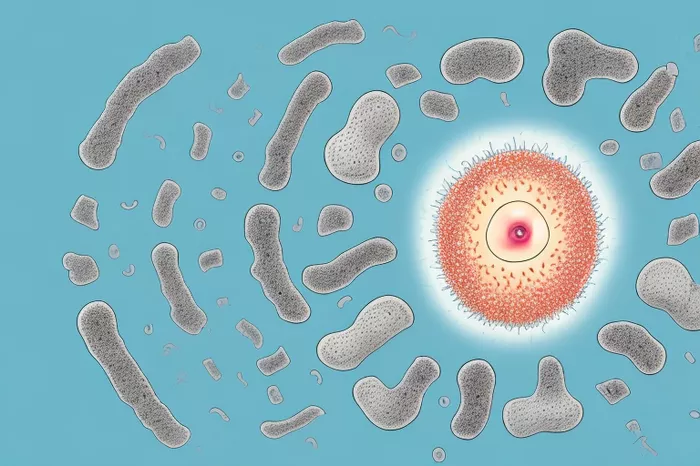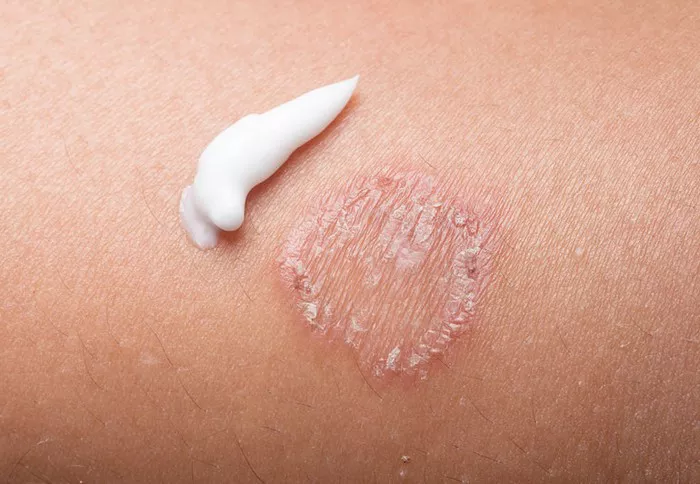Ringworm, despite its misleading name, is not caused by a worm at all. This common fungal infection affects the skin, scalp, and nails, presenting a myriad of symptoms that can be both discomforting and aesthetically displeasing. In this comprehensive article, we will delve into the world of ringworm, exploring its various manifestations and shedding light on the importance of early detection and treatment.
Ringworm: What Exactly is it?
Contrary to its name, ringworm is not a parasitic worm but rather a fungal infection caused by dermatophytes, a group of fungi that thrive on keratin, the protein found in the skin, hair, and nails. This contagious infection can affect individuals of all ages, genders, and backgrounds, leading to a range of symptoms that can vary in intensity and presentation.
Common Types of Ringworm and Their Symptoms
Ringworm can manifest in different forms, each targeting specific areas of the body. Understanding the symptoms associated with each type is crucial for accurate diagnosis and timely intervention.
1. Tinea Corporis (Ringworm of the Body):
This form of ringworm typically appears as red, scaly patches on the skin, forming a distinct ring shape that gives the infection its name. It often causes itching and discomfort, and without proper treatment, the rash can spread to other areas of the body.
2. Tinea Capitis (Ringworm of the Scalp):
Primarily affecting children, tinea capitis presents with symptoms such as bald patches, scaly or crusty areas on the scalp, and sometimes, painful and swollen lymph nodes. Identifying and treating this form early is crucial to prevent long-term hair loss.
3. Tinea Cruris (Jock Itch):
Common among men, tinea cruris affects the groin and inner thighs. Symptoms include a red, itchy rash that may spread to the buttocks and abdomen. Maintaining good personal hygiene and wearing breathable fabrics can aid in prevention.
4. Tinea Pedis (Athlete’s Foot):
Found on the feet, particularly between the toes, tinea pedis causes itching, burning, and cracked skin. The infection can spread to the toenails, leading to additional complications if left untreated.
General Symptoms of Ringworm
While each type of ringworm presents with its own set of symptoms, there are commonalities that unite these various manifestations. Recognizing these general symptoms can prompt individuals to seek medical attention promptly.
1. Itching and Discomfort:
One of the hallmark symptoms of ringworm is itching. The affected area may become red, inflamed, and uncomfortable. Scratching can exacerbate the condition and increase the risk of spreading the infection to other parts of the body.
2. Red, Circular Rash:
The characteristic ring-shaped rash is a key identifier of ringworm. The outer edge may be raised and red, while the center often appears clear or normal. It is important not to dismiss any suspicious skin changes and to consult a healthcare professional for a thorough examination.
3. Scaling and Peeling:
As the infection progresses, the skin may start to peel and become scaly. This can contribute to the overall discomfort and, if left untreated, may lead to secondary bacterial infections.
4. Hair Loss (in Tinea Capitis):
In cases of tinea capitis, hair loss is a common symptom. Affected areas may have broken or stubbly hair, and severe cases can result in permanent hair loss if not addressed promptly.
The Importance of Early Detection and Treatment
Early detection of ringworm is paramount in preventing the escalation of symptoms and minimizing the risk of spreading the infection to others. Timely treatment not only alleviates discomfort but also reduces the chances of complications and long-term consequences.
1. Seeking Professional Medical Advice:
Upon noticing any suspicious symptoms, it is imperative to consult a healthcare professional for a proper diagnosis. Dermatologists are well-equipped to identify ringworm and recommend an appropriate course of treatment based on the type and severity of the infection.
2. Topical Antifungal Medications:
The primary treatment for most cases of ringworm involves the use of topical antifungal medications. These creams, ointments, or sprays are applied directly to the affected area and work to eliminate the fungal infection. Consistent and thorough application is essential for successful treatment.
3. Oral Antifungal Medications:
In cases where the infection is severe or not responding to topical treatments, oral antifungal medications may be prescribed. These medications work from the inside out, targeting the fungal infection systemically. It is crucial to follow the prescribed dosage and complete the entire course of medication to ensure eradication of the infection.
4. Hygiene and Preventive Measures:
Practicing good personal hygiene is essential in preventing the spread of ringworm. Regular handwashing, avoiding sharing personal items like towels and combs, and keeping the affected areas clean and dry contribute to the overall success of the treatment and reduce the risk of recurrence.
Complications and When to Seek Medical Attention
While ringworm is generally a treatable and self-limiting condition, complications can arise in certain situations. It is crucial to be aware of these potential complications and seek medical attention if needed.
1. Secondary Bacterial Infections:
Persistent scratching of the affected area can lead to breaks in the skin, creating an entry point for bacteria. Secondary bacterial infections may require additional medical intervention, such as antibiotics.
2. Spread of Infection:
Without proper treatment and preventive measures, ringworm can spread to other parts of the body or to other individuals. Timely and comprehensive treatment is key to containing the infection.
3. Permanent Hair Loss (in Tinea Capitis):
In cases of tinea capitis, delayed or inadequate treatment may result in permanent hair loss. Early intervention is crucial to minimize the impact on hair follicles.
Conclusion
In conclusion, understanding the symptoms of ringworm and the importance of early detection and treatment is paramount for individual health and public well-being. By recognizing the various manifestations of this common fungal infection, individuals can take proactive measures to seek timely medical attention, leading to effective treatment and a quicker resolution of symptoms.
Empowering the public with knowledge about ringworm symptoms not only aids in early intervention but also plays a pivotal role in preventing the spread of the infection within communities. As we navigate the complexities of healthcare, awareness and education stand as powerful tools in promoting a healthier and more informed society.


























